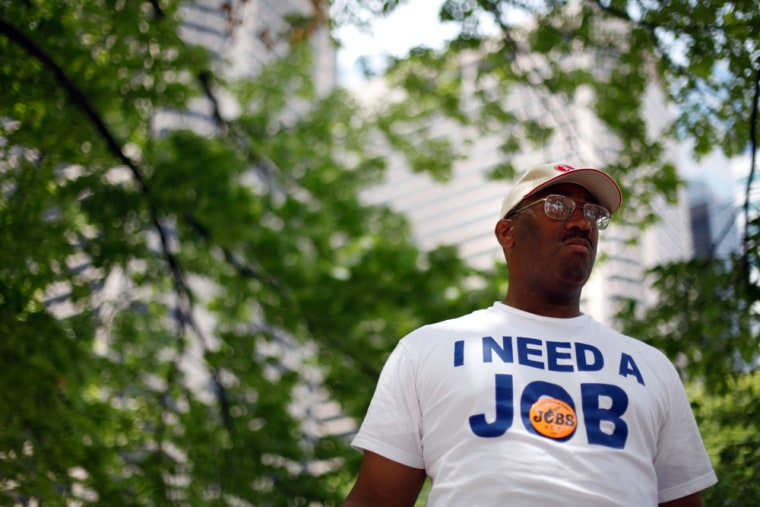As the jobs crisis drags on, a new class of workers has emerged: those who appear to have been written off for full-time employment, and remain out of work for an extended period. Even though a smaller number of Americans has experienced joblessness during this downturn than in past ones, the average duration of unemployment has been far longer -- meaning the pain is being shared far less equally.
In an op-ed in Sunday's New York Times, two prominent economists -- Dean Baker of the liberal Center for Economic and Policy Research and Kevin Hassett of the conservative American Enterprise Institute -- teamed up to highlight the problem, and to draw attention to the approach taken by one of our chief global competitors:
The German government aggressively pushed work-sharing measures. This meant that instead of workers’ being laid off and receiving unemployment benefits, the German government helped companies keep employees, working fewer hours, on their payrolls by subsidizing their wages with the money saved on unemployment benefits.The result of this policy is that Germany’s unemployment rate is now lower than it was at the start of the downturn, even though its growth has been no better than ours.
Whether or not that's the right approach for us, Baker and Hassett call for urgent action, writing: "Policy makers must come together and recognize that this is an emergency, and fashion a comprehensive re-employment policy that addresses the specific needs of the long-term unemployed."
But with campaign season now fully underway, there's little hope for lawmakers to come together until 2013 at the earliest. And that figures to leave the roughly 5 million Americans who are currently members of the long-term unemployed twisting in the wind.
